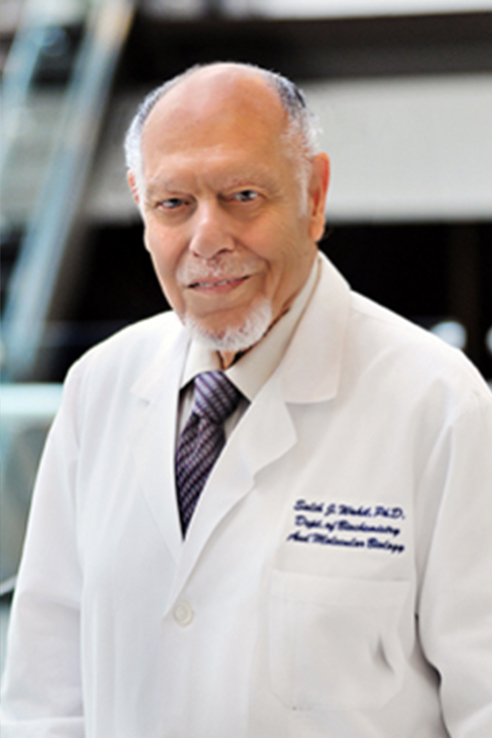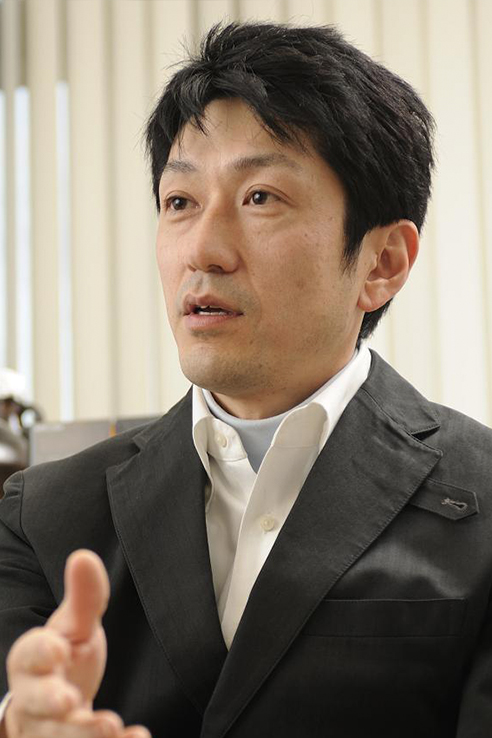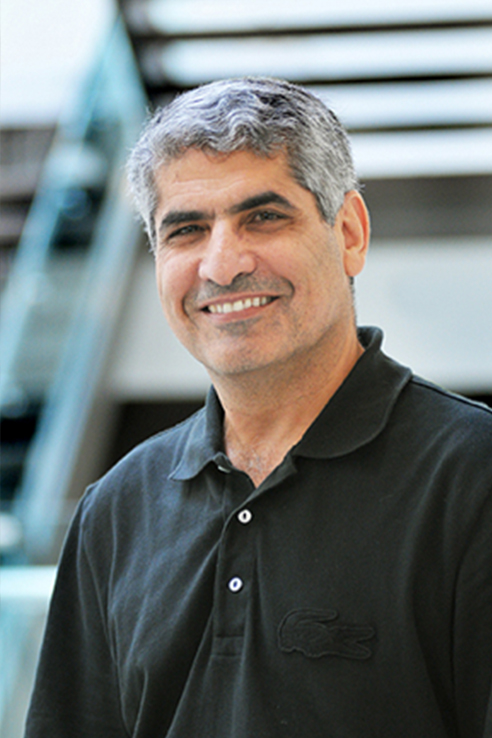FGH BioTech, Inc. was founded in 2011 through a technology transfer license agreement from Baylor College of Medicine (Houston, Texas) by Salih J. Wakil PhD, Motonari Uesugi PhD, and Lutfi Abu-Elheiga PhD.

Salih J. Wakil PhD
Salih J. Wakil revolutionized and laid the foundation for much of what is understood about fatty acid metabolism today. At the University of Wisconsin, Dr. Wakil began work on fatty acid oxidation and helped elucidate the steps by which fatty acids are oxidized. In contrast to the prevailing dogma at the time, he also demonstrated that fatty acids are synthesized and oxidized by two separate pathways. In 1959, he joined the Department of Biochemistry at Duke University.
Dr. Wakil’s laboratory discovered both Acetyl CoA Carboxylase (ACC) and Fatty Acid Synthetase (FAS), the two key enzymes of fatty acid synthesis. The discovery of the multifunctional FAS enzyme dispelled the long-held concept of one-gene, one-enzyme, one function. Dr. Wakil left Duke in 1971 to become professor and chairman of the Verna and Marrs McLean Department of Biochemistry and Molecular Biology at Baylor College of Medicine in Houston, Texas.
At Baylor, he and his colleagues studied the complex structure and regulation of ACC and FAS. In recent years, his interest naturally evolved to developing therapeutics and treatment strategies that could regulate a healthy balance between fat synthesis and fat oxidation. His work has received continuous funding from the National Institutes of Health, the National Science Foundation, and private foundations for over 60 years.
Today, Dr. Wakil remains Chairman Emeritus of the Department of Biochemistry and Molecular Biology at Baylor. Dr. Wakil has numerous honors credited to him as a result of his lifetime work in fat and energy metabolism. In 1990, Dr. Wakil was elected to the National Academy of Sciences.

Motonari Uesugi PhD
Dr. Uesugi received his BS and PhD degrees with majors in Pharmaceutical Chemistry and Biochemistry from Kyoto University in Japan, where he studied the chemistry and biochemistry of antitumor therapy and oncogenic natural products. Dr. Uesugi then conducted his postdoctoral work with Dr. Gregory L. Verdine at Harvard University from 1995 to 1998 studying the molecular mechanisms of gene transcription.
Dr. Uesugi joined the faculty of the Department of Biochemistry at Baylor College of Medicine in 1998 where he established a unique laboratory in the emerging area of chemical biology. Working closely with Dr. Wakil, he focused on identifying small molecule regulators of fat synthesis. He is now professor and Deputy Director of the Institute for Integrated Cell-Material Sciences at Kyoto University. He is a world expert in the mechanisms and regulation of SREBP transcription factors.

Lutfi Abu-Elheiga PhD
Dr. Abu-Elheiga received his BSc, MSc and PhD from the Hebrew University of Jerusalem. He is an Associate Professor at Baylor College of Medicine where he has conducted extensive studies on the function and regulation of Acetyl CoA Carboxylase 1 and 2. His work on the ACC2 knockout mice published in Science in 2001, received specific praise by the National Institutes of Health as one of the most significant NIH sponsored publications of that year. More recently, his work has focused on the modulation of SREBP transcription factors in both in vitro assays and animal models.
He has numerous honors and awards including; the Michael E. DeBakey Excellence in Research Award (2001) and The Obesity Best Thematic Poster Award from the American Society for Biochemistry and Molecular Biology (2011).